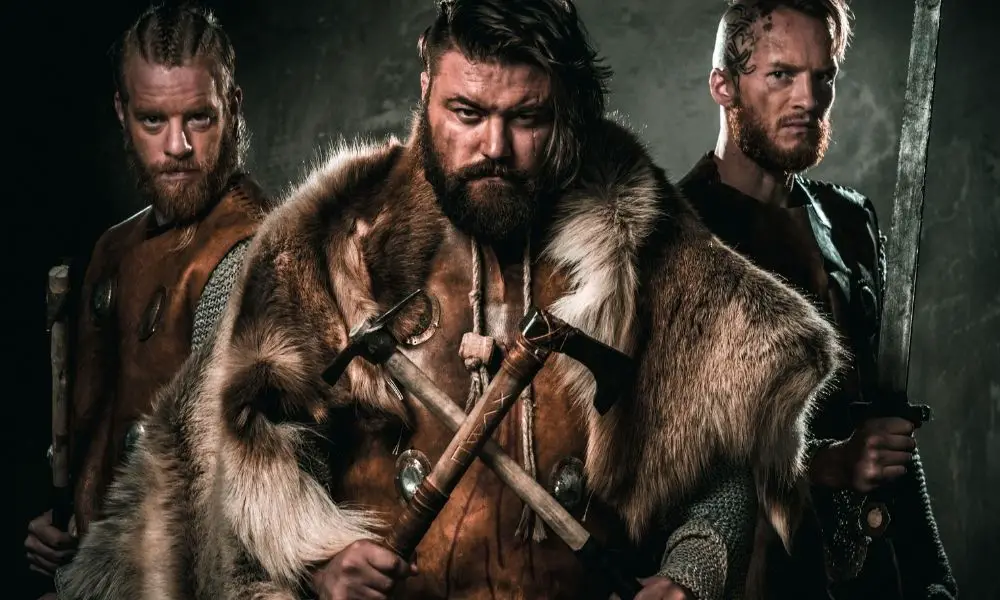

When you hear the word “Viking,” you might envision a hulking, muscular man with unkempt hair, dirty skin, and plain attire. But this image of a Viking couldn’t be further from the truth. In reality, the Vikings were clean, fashionable people. Most Viking clothing has been poorly preserved, but what remains tells us that they wore classy clothes painstakingly handcrafted from wool, leather, and silk and ornamented with jewelry. If you want to learn the truth about what the Vikings wore, here’s your answer.
The men of Norse society wore simple garb consisting of a tunic, trousers, a cloak, and assorted accessories. Their tunics were loose, thick, and long-sleeved, trailing to the knees. They wore their cloaks over the same shoulder they drew their weapon with and fastened it with a brooch. Trousers were believed to resemble plus fours, or pants gathered at the knee. Beneath the knee, they wore wool socks or puttees for warmth.
Most Viking men donned jewelry, which was a sign of status and wealth as well as a fashionable accent. Necklaces were common, as were armbands, which could be pulled apart for use as currency. Their shoes were made from leather, which was the choice footwear material for all ages and genders. Shoes were usually ankle height, but the Vikings also wore boots.
The typical Norse lady wore a plain strap dress with undergarments or a smock underneath. The thick strap dress was held up by thin straps on both shoulders. The straps were fastened in front with two shell-shaped brooches, which featured vibrant beads of amber, silver, bone, or glass strung in between. The smock or undergarments underneath could be either plain or pleated. Like the men, most women sported a cloak over their shoulders, which was fastened with another brooch—often a small trilobite.
Accessory-wise, women wore many of the same kinds of jewelry as men. They also wore belts around their waists, from which they tied small leather satchels for housing small items such as matches.
The clothes children wore were akin to their parents’ garments: boys wore tunics and trousers, and girls wore smocks.
But what did the Viking warriors and shieldmaidens wear? Surely a thin tunic or smock wasn’t protective enough for battle. Both male and female warriors were believed to have worn thick, coarse tunics and trousers as a base. Over these tunics and trousers, they wore belts—where they kept their weapons—as well as leather body armor and a shield for protection. Viking warrior clothing was often light, which afforded them greater movement in the fray.
So what did the Vikings wear? The clothing of all Vikings—man, woman, and child—was eye-catching yet humble, thick and warm yet easy to move around in. As you can see, the Vikings were both practical and fashionable folk.
Is it time to revamp your food delivery process? Learn actionable ways restaurants can improve…
Key Takeaways: Recognizing the problem is the first critical step toward recovery. Support networks and…
We often think of communication as verbal — what we say, how we say it,…
The benefits of martial arts go beyond improved fitness. Discover five rewards of martial arts…
Safety should be every business leader’s priority. Discover four essential factors that create safer manufacturing…
Discover key reasons your renovated kitchen no longer looks good, and learn how to regain…